
Jan 15, 2013 | News
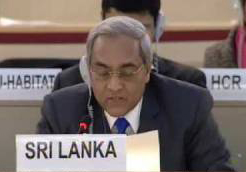 The appointment of former Attorney General Mohan Peiris (photo) as Sri Lanka’s new Chief Justice raises serious concerns about the future of the Rule of Law and accountability in the country, the ICJ said today.
The appointment of former Attorney General Mohan Peiris (photo) as Sri Lanka’s new Chief Justice raises serious concerns about the future of the Rule of Law and accountability in the country, the ICJ said today.
Mohan Peiris has served in a variety of high-level legal posts in the past decade, always playing a key role in defending the conduct of the Sri Lankan government.
He served as Sri Lanka’s Attorney-General from 2009 to 2011. Since then he has served as the legal adviser to President Mahinda Rajapakse and the Cabinet.
“During his tenure as Attorney-General and the government’s top legal advisor Mohan Peiris consistently blocked efforts to hold the government responsible for serious human rights violations and disregarded international law and standards,” said Sam Zarifi, ICJ’s Asia director.
“Mohan Peiris’ appointment as the new Chief Justice, after a politically compromised and procedurally flawed impeachment, adds serious insult to the gross injury already inflicted on Sri Lanka’s long suffering judiciary.”
The International Commission of Jurists, in its recent report on impunity in Sri Lanka, highlighted Mohan Peiris’ lack independence as Attorney-General, noting the alarming number of cases involving prominent politicians that were withdrawn during his tenure.
In November 2011, as Attorney General, Peiris told the UN Committee Against Torture in Geneva that political cartoonist Prageeth Ekneligoda, believed to have been subjected to enforced disappearance in January 2010, had actually left Sri Lanka. In June 2012, Peiris admitted to a court in Colombo that this claim was groundless.
“ICJ condemns this appointment as a further assault on the independence of the judiciary and calls on the Sri Lankan government to reinstate Chief Justice Shirani Bandaranayake. If there are grounds for questioning the Chief Justice’s actions, they should be pursued following due process and a proper impeachment process.”
CONTACT:
Sam Zarifi, ICJ Asia-Pacific Regional Director, Bangkok, t:+66 807819002; email: sam.zarifi(at)icj.org
Sheila Varadan, ICJ Legal Advisor, South Asia Programme, Bangkok, t: +66 857200723; email: sheila.varadan(at)icj.org
NOTE:
In a statement today (see below), Justice Bandarayanake strongly denied all the charges against her and asserted her status as the legal Chief Justice of Sri Lanka’s supreme court. She said: “The accusations leveled against me are blatant lies. I am totally innocent of all charges…Since it now appears that there might be violence if I remain in my official residence or my chambers I am compelled to move…”
Sri Lanka-CJ final speech-2012 (full statement, in pdf)
Read also:
ICJ condemns impeachment of Sri Lanka’s Chief Justice
Sri Lanka’s Parliament should reject motion to impeach Chief Justice
Impeachment of Sri Lankan Chief Justice: Government must adhere to international standards of due process
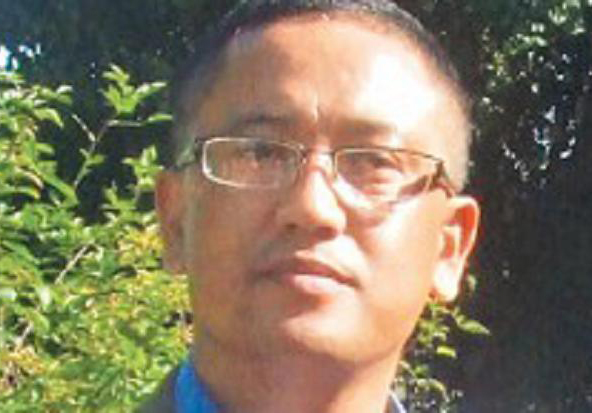
Jan 8, 2013 | News
 The Nepali government should cooperate with any investigation into allegations of torture against Nepal Army Colonel Kumar Lama, recently arrested and charged in the United Kingdom, the ICJ said today.
The Nepali government should cooperate with any investigation into allegations of torture against Nepal Army Colonel Kumar Lama, recently arrested and charged in the United Kingdom, the ICJ said today.
“The ICJ welcomes the steps taken by the UK to criminally investigate and bring to justice an individual suspected of the serious crime of torture,” said Sam Zarifi, ICJ’s Asia Director. “If the government wants to prevent the future prosecution of conflict-era human rights violations in foreign countries, then it must cooperate with the UK proceedings, and take immediate steps to investigate and prosecute similar violations domestically, in line with Nepal’s own international obligations and the jurisprudence of Nepal’s Supreme Court.”
UK authorities arrested Colonel Lama on January 3rd for his alleged involvement in the torture of detainees while commander of the Gorusinge Battalion barracks in Kapilbastu in 2005.
Colonel Lama is currently serving as UN peacekeeper in the Sudan. At the time of the arrest, he was visiting family members who reside in the UK.
In response to the arrest, senior Nepali government leaders including the Deputy Prime Minister have called for his immediate release, and characterized the arrest as an “attack on national sovereignty.”
The ICJ pointed out that such statements seem to be predicated on a basic misunderstanding of both the UK and Nepal government’s international obligations to investigate and prosecute acts of torture, which are crimes under international law.
The Convention Against Torture and Other Cruel, Inhuman or Degrading Treatment of Punishment, to which both the UK and Nepal are party, expressly provides under article 7 that a State must prosecute or extradite for prosecution a person found under its territorial jurisdiction.
This obligation is an expression of the legal principle of “universal jurisdiction,” under which all States have a duty, not only a right, to prosecute and punish crimes under international law, including torture, and to take effective measures including the adoption of national legislation to exercise jurisdiction over such crimes.
In many countries, including the UK, legislation grants the courts jurisdiction to prosecute certain international crimes, including torture, regardless of where the violations took place.
The UK legislation was passed as part of an effort to comply with international law, including the Geneva Conventions on the laws of war and the Convention Against Torture.
For the UK police to release Colonel Lama without conducting a full investigation, as called for by the government of Nepal, would constitute a violation of the UK’s own international obligations, the ICJ stresses.
“This arrest by the UK police is not a threat to the sovereignty of Nepal; on the contrary, the acceptance of international human rights legal obligations to combat torture constitutes a clear expression of sovereignty by both the UK and Nepal. The UK through its actions this week is rightfully discharging these obligations,” Zarifi said. “Nepali victims have been forced to seek redress outside their own country against perpetrators because of the government of Nepal’s track record of failing to prosecute conflict-era crimes.”
“Decades of experience from around the world demonstrates that the failure to provide truth and justice as a society transitions away from conflict hampers the development of a durable peaceful society. That’s why the Nepali government should do all it can to help thousands of Nepali victims receive truth and justice in Nepal, and wherever perpetrators may be hiding,” Zarifi added.
National courts are generally reluctant to invoke universal jurisdiction to prosecute foreign nationals, and usually only do so when it is clear that national authorities are unable or unwilling to investigate and prosecute the alleged violation.
In Nepal, successive governments have not only failed to show their commitment to prosecute these crimes, but have made systematic efforts to avoid accountability, and rewarded suspected violators with promotions, ministerial appointments and opportunities to participate in UN peacekeeping operations.
The ICJ advised the government of Nepal that the most effective way to prevent the future arrest and prosecution abroad of those alleged to have been responsible for torture and other gross human rights violations is to:
- Show its commitment to the international rule of law by cooperating with any investigation by the UK police into the culpability of Colonel Lama, including allowing police to visit Nepal if such a request is made as part of their investigation;
- Order the prosecution of serious crimes committed during the conflict to move forward, and end attempts to introduce an amnesty for such crimes;
- Introduce transitional justice legislation that is in line with Nepal’s obligations under international law, and precludes the granting of amnesty for serious crimes;
- End politically-motivated withdrawals of human rights cases now before Nepali courts; and
- Criminalize torture, enforced disappearance and other crimes under international law.
Contact:
In Kathmandu, for ICJ, Frederick Rawski: t +977-984-959-7681
In Bangkok, for ICJ Asia-Pacific, Sam Zarifi: t +66-807-819-002
FURTHER READING:
Nepal: ‘toothless’ commissions of inquiry do not address urgent need for accountability – ICJ report

Dec 13, 2012 | News
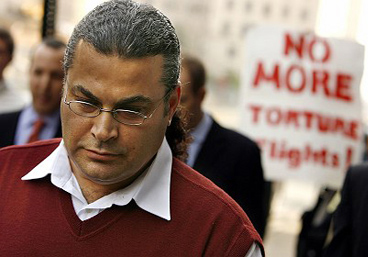 Today’s ruling on the CIA’s detention and rendition of Khaled El-Masri is a historic moment because for the first time it holds a European state accountable for its involvement in the secret US-led programmes.
Today’s ruling on the CIA’s detention and rendition of Khaled El-Masri is a historic moment because for the first time it holds a European state accountable for its involvement in the secret US-led programmes.
It is also a milestone in the fight against impunity, Amnesty International and the International Commission of Jurists (ICJ) said.
The European Court of Human Rights held unanimously that the former Yugoslav Republic of Macedonia (Macedonia) was responsible for the German national Khaled El-Masri’s unlawful detention, enforced disappearance, torture and other ill-treatment, and for his transfer out of Macedonia to locations where he suffered further serious violations of his human rights.
Further, that Macedonia did not satisfy its obligation to carry out an effective investigation.
“This judgment confirms the role Macedonia played in the Central Intelligence Agency (CIA) rendition and secret detention programmes, and is an important step towards accountability for European complicity in rendition and torture,” said Julia Hall, Amnesty International’s expert on counter-terrorism and human rights.
“Macedonia is not alone. Many other European governments colluded with the USA to abduct, transfer, ‘disappear’ and torture people in the course of rendition operations. This judgment represents progress, but much more needs to be done to ensure accountability across Europe.”
“This ruling is historic. It recognises that the CIA rendition and secret detention system involved torture and enforced disappearances. It emphasises that both the victims and the public have the right to know the truth about these serious violations. It affirms without doubt that Europe cannot be an area of impunity but it must be a place of redress and accountability where international human rights law obligations are not bypassed but fulfilled,” said Wilder Tayler, Secretary General of the ICJ.
“Other European governments – such as Poland, Lithuania, and Romania, against which cases are also pending with the Court – should note today’s European Court judgment and take measures to ensure that the truth is told, thorough, effective, independent and impartial investigations are carried out and those responsible are held accountable.”
The Court’s ruling also serves to highlight the absence of accountability and remedy in the USA, noting that the claim filed against the CIA by Khaled El-Masri was dismissed by the US courts after the US administration invoked the “state secrets privilege”.
On 31 December 2003, the Macedonian authorities arrested El-Masri, who is of Lebanese descent, after he entered Macedonia from Serbia.
They held him incommunicado, subjecting him to enforced disappearance, repeated interrogations and to ill-treatment, until 23 January 2004 when they handed him over to Central Intelligence Agency (CIA) agents.
As part of the covert, US-led rendition and secret detention programme, the CIA transferred El-Masri to a secret detention facility in Afghanistan.
There he was held unlawfully in secret, not charged with any crime and his detention was not subject to judicial review. He did not have access to a lawyer. His whereabouts were not acknowledged and he was held incommunicado.
As a result he was subjected to enforced disappearance for over four months. While in Afghanistan, he was subjected to torture and other ill-treatment.
On 28 May 2004, El-Masri was put on a plane and flown to Albania where he was released.
Contact:
Róisín Pillay, Director, ICJ Europe Programme, t +41 22 979 38 30; e-mail: roisin.pillay(at)icj.org
For the ICJ/AI third party intervention, click here
Europe-Joint public statement El Masri-2012
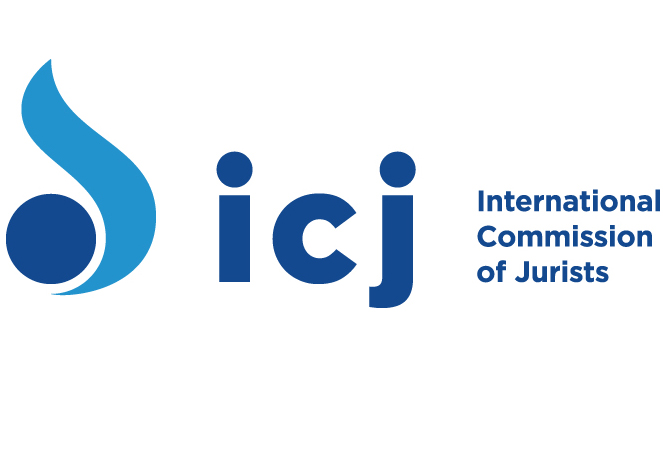
Nov 14, 2012 | Agendas, Events
The ICJ is organizing this workshop in collaboration with Cross Cultural Foundation (CrCF) and the Association for the Prevention of Torture (APT) from 17 – 18 November 2012 in Bangkok, Thailand.
The workshop is aimed at supporting and strengthening civil society groups in Thailand in their engagement at the international level to address key issues in the implementation of the UNCAT.
This is a follow-up to a previous workshop held by the ICJ together with the APT and OHCHR last January 2012 where Thai groups decided to submit an alternative report to the UN Committee against Torture.
The November workshop will have discussions on the role of the UN Committee against Torture, as well as key provisions of the UNCAT.
A representative from the Commission on Human Rights of the Philippines will be sharing to Thai groups on the Commission’s experience on drafting an alternative report on the Philippines.
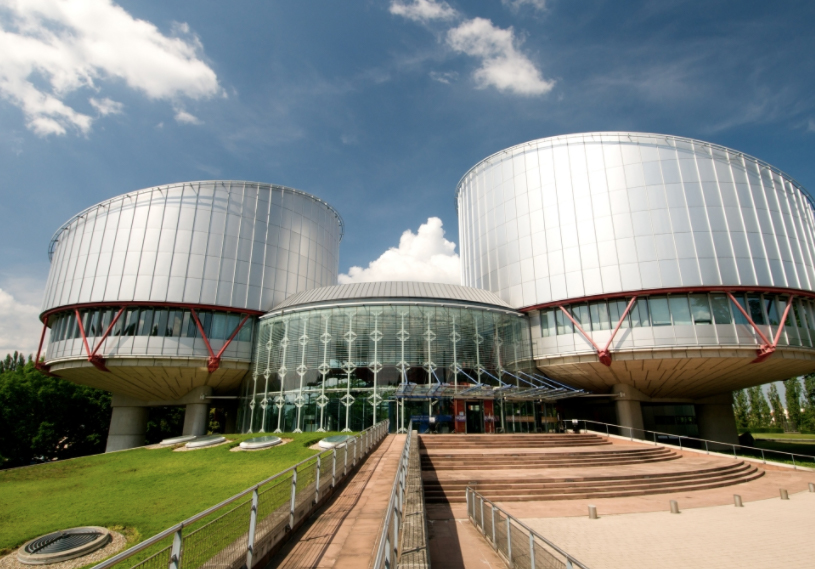
Nov 5, 2012 | Advocacy, Cases, Legal submissions
 The ICJ and Amnesty International presented a third party intervention in the case Al Nashiri v Poland before the European Court of Human Rights.
The ICJ and Amnesty International presented a third party intervention in the case Al Nashiri v Poland before the European Court of Human Rights.
In the third party intervention, the ICJ and AI outlined developments on the principle of non-refoulement, on the human rights obligations in breach in the practice of “renditions” and “secret detention”, on enforced disappearances, on the international law of state responsibility both for human rights violations occuring on the territory of a High Contracting Party committed by another State and following return of a person to a third State, and the right to a remedy and to reparation.
ECtHR-ICJAI-AmicusBrief-AlNashiri_v_ Poland-2012 (download the third party intervention)

 The appointment of former Attorney General Mohan Peiris (photo) as Sri Lanka’s new Chief Justice raises serious concerns about the future of the Rule of Law and accountability in the country, the ICJ said today.
The appointment of former Attorney General Mohan Peiris (photo) as Sri Lanka’s new Chief Justice raises serious concerns about the future of the Rule of Law and accountability in the country, the ICJ said today.










